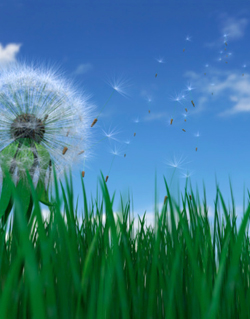Mauna – a source of silence and energy
By Yoga professor Gregorian Bivolaru
 Is it true or not that the great thinkers had been talkative? Is the spiritually evolved man recognized according to the multitude of words meant to drown anyone who comes close? Do crossword puzzles truly help us to develop our intelligence, or do they represent one of the most dangerous “vampires” of mental energy? Do we know how our mental energy can be best used?
Is it true or not that the great thinkers had been talkative? Is the spiritually evolved man recognized according to the multitude of words meant to drown anyone who comes close? Do crossword puzzles truly help us to develop our intelligence, or do they represent one of the most dangerous “vampires” of mental energy? Do we know how our mental energy can be best used?
Once, long ago, a disciple named Bhaskali approached his Guru, Bhava, and asked him: “Where is The Eternal and what does The Supreme Absolute mean, who is Brahman (God, The Father) that the Upanishads talk about? However, his master didn’t reply, but he remained silent. The disciple insisted and asked him again and again, but in spite of all these, the master didn’t answer at all, abiding in his quietness. Only much later he said: “I’ve already told you, over and over, but you aren’t able to understand me. What can I do to you? Brahman (God, The Father), The Absolute or The Eternal, cannot be explained in words! Only in a profound silence, full of aspiration and love, can one know Him. There’s no other place where He can be found, except in the profound silence of the Supreme Self (ATMAN)! This Atman is, above all, the everlasting Silence (Aham Atma Santah).”
The peace beyond sound is God
God, The Father, or Brahman is primarily The Supreme Silence. The soul in its depth is Silence. The peace of the mind is Silence. Atman (The Supreme Self) is Silence. Silence belongs to God, the one perpetually mysterious, essential language. Silence is the deep language of the heart, and because of this, it is the true language of the wise, because, first of all, quietness represents an immense power, and living proof of God’s true eloquence.
Profoundly acknowledged silence is God. Therefore, it is the ultimate substratum or the essence of this body, of prana, and of the mind. Silence is the background where the entire universe of senses is projected. It is an esoteric reality. That profound, beatific peace, which transcends any rational understanding, is the real Silence. The essence of life, but also the target of our whole existence, is that Silence. Beyond all noises and all sounds, is where the Silence is found. It is characteristic of an awareness that perceives reality directly through ecstatic, intuitive experience. It is, in reality, your profound being. To be deeply submerged in silence, actually means to open yourself up completely for the UNITY with God. That’s why, the ultimate purpose of life, may be correctly considered the perfectly aware re-integration into God’s mysterious and intensely beatific silence. And regarding to this, we find enough examples: the message of Sahara desert is Silence; the message of Himalaya Mountains is Silence; the message of the wise Avadhota who lives naked on the frozen peak Gangotri, or Kailas, is Silence. When your heart is full of God’s love and when you are in ecstasy, then you’re in Silence. Who can describe in words the overwhelming glory of Silence?
There is no better healing balm than Silence for those humans whose hearts are aggrieved because of failure, disappointment or loss. There is no better remedy than Silence for those whose nerves are over strung due to their tumultuous lives, stress and quarrels of all kinds. Each time we get into the state of profound sleep without dreams, we experience the mysterious and ineffable state of Silence, but the veil of ignorance (Avidya) hides this experience from our consciousness. The Silence that we reach during profound sleep without dreams, and also the Silence that lays inherently over the entire being when the night comes, are proofs of the existence of that Mysterious Endless Ocean of Silence or Brahman (GOD, The Father).
 From physical quietness to the state of perfect repose of the mind
From physical quietness to the state of perfect repose of the mind
For the common man, the mind is almost permanently bewildered or roused by at least one of the 11 “organs” (Indryias) subordinate to it (these are the five organs of cognition- for smell, for taste, for sight, for touch and for hearing – the five organs of action – for talking, for grip (with the hands), for motion, for excretion and for sexual activity – and, finally, the inferior mind, which acts like a SUI GENERIS filter-interface between senses and the consciousness of the ego). To achieving absolute control of the mind, the mollification of the activity of these organs at will is therefore necessary. Only then, the Silence inside of us will be revealed.
On the level of common intellectual understanding, to remain silent for a certain period of time, without talking to anyone, means to withdraw yourself in silence, but, by extension, this experience is applicable to other domains too. For instance, if your best friend does not write to you a longer period of time, you’ll be tempted to think: “My friend manifests a long period of silence. I do not know why.” If, in a conference, the orator stops speaking for a few moments during a thrilling lecture, we will relate this situation in the following manner: “There has even been a drop of silence, yesterday evening, at the conference.” When in India, you may meet two people who have attained the state of holiness (Sadhu), it is possible that one of them will tell you: “This holy man (Sadhu) is steadfast in Silence (Mauna). He is my friend, and he has respected this pledge stringently for six years now.”
All these represent physical silence.
But if you stop letting your eyes see, and you put them away from objects constantly, through the practice of Pratyahara or Dama (the perfect forbearance of the sense organs), this brings on the silence of one of the Indryas, sight. If you stop letting your ears hear sounds, it means that you’ve achieved the silence of another Indrya, the hearing. Likewise, the complete alimentary fast in the holy days of feast involves the calmness of another organ of action (Indrya) – the tongue. If you don’t move at all and you practice the lotus posture (Padmasana) continuously for three hours, you will make the calmness of activities of the hands and feet possible. All these are useful, but what’s most desired is the calmness of the agitated mind. We can stringently respect the pledge to keep physical silence, and, with all these, our mind can generate new images further on.
Then the process of thinking (chitta) will again be able to bring all kinds of memories in the field of our consciousness.
Imagination, motivation, reflection and other various functions of the mind won’t necessarily stop their activity simply by strictly holding to a pledge of physical silence. Therefore, we must realize that this kind of silence alone does not guarantee achievement of real peace or a state of perfect inner silence!
In this case, the only solution left is for the intellect to stop functioning as long as we’re not urgently in need of it. This function of the astral body must then be in a state of perfect relaxation, in order to be able to go beyond it more easily. It is necessary to create complete quietness of the mental waves. Our mind must rest then in The Mysterious Ocean of Silence or Brahman (GOD – The Father).
Only then we will truly be able to perceive the real and unfading Mystic Silence.
 The four pledges
The four pledges
The direct meaning of the word “Mauna” is the pledge of silence, but in reality there are more kinds of Mauna:
1. The complete control of the act of speaking is named Vak Mauna. Therefore, if you keep the organ for the act of speaking (Vak Indrya) perfectly quiet, this is Vak Mauna.
2. The complete suspension of all the voluntary physical actions is Koshta Mauna. In the perfect state of Koshta Mauna, which is EXTREMELY USEFUL especially for aspirants who pursue to reveal their Supreme Self (ATMAN), you’re supposed to hold even your head unmoved. You are not to make any sign. You don’t write anything on a paper and nor try to express your ideas in any way. However, in the state of Vak Mauna and Koshta Mauna, the fluctuations of the mind are not suspended.
3. An entirely equal point of view upon all things, human beings and phenomena, and also the firm keeping in mind of the idea that, eventually, all is nothing else but Brahman (GOD- The Father), it represents Susupti Mauna (Susupti actually refers to the way the human consciousness in the state of profound sleep without dreams works). The almost complete dismissal of all doubts from the mind, which follows the firm realization concerning the illusory character of this world, is also Susupti Mauna. The fair conclusion that the whole MACROCOSM is nothing else but Brahman’s BODY (GOD-The Father), is Susupti Mauna as well.
4. Brahman (GOD-The Father) is named Maha Mauna, as He is the supreme impersonation of the Silence. Maha Mauna is, we can say, the true Mauna. That is why, Vak Mauna represents not only a phase on the path to the attaining of Maha Mauna, and this is the reason that places Mauna of the mind on a far superior level to Vak Mauna or the Mauna of speech.
The act of speaking keeps the soul in a state of ignorance
Vak Indrya, or the organ for the action of speaking is actually a powerful weapon of the phenomenal illusory world (Maya) for maintaining The Alive Soul (Jiva) in a state of error, by perturbing the mind almost constantly. Thus, the act of speaking provokes a continuous exteriorization of the mind.
Quarrels, disputes, etc., mostly occur due to the game of this turbulent Vak Indrya. In such situations, language may be considered to be a sword and words as arrows. In this way, we often hurt the feelings of others and generate resentful attitudes.
Women, especially, are very talkative. They almost always create a certain kind of noise, when they are gathered in groups, sometimes generating a stressful atmosphere.
A more thorough study of a particular scientific domain- literature, law, Sanskrit language, etc., -makes some people become very talkative, as they feel almost pushed to get into discussions (mostly useless!), propelled by their own elation, to show their scholarly erudition. Scholasticism or the unnecessarily exposure of their knowledge is a specific attribute of still immature and vain students.
In this direction, there is a very significant pattern of ancient wisdom, which compares the behavior of a new and enthusiastic aspirant on a spiritual path to the noise produced by the air when it is forced out by the water rushing into an empty bottle plunged under water.
 Unlike this case, the behavior of an aspirant who has almost reached to the realization of the Supreme Self (Atman) is, analogically speaking, similar to the imperceptible noise produced by the air when the bottle is almost totally filled with water. Once it is completely filled (in other words- having achieved the realization of the Supreme Self – Atman), Silence follows…
Unlike this case, the behavior of an aspirant who has almost reached to the realization of the Supreme Self (Atman) is, analogically speaking, similar to the imperceptible noise produced by the air when the bottle is almost totally filled with water. Once it is completely filled (in other words- having achieved the realization of the Supreme Self – Atman), Silence follows…
Vak Indrya is mostly impetuous and turbulent, and that is why it is considered as being very harmful. Through diligent practice, full of firmness, it must gradually be brought under control.
When we begin to succeed in controlling it, it will try to act disobediently. But we must be very determined and courageous.
In such situations, we must not allow anything to come out from the mind through Vak-Indrya. That’s why it is necessary to pursue to the realization of Mauna. Diligent, constant and detached effort is going to help us. When success appears we will know that we have removed an important source of agitation. When we are successful, we will be also able to control our ears (or the sense of hearing) much more easily, because if we get to control Vak Indrya, it may be stated that we already control half of the mind.
The force which heals incurable diseases
A lot of psycho-mental energy is lost by useless speaking and chatter. Common people never become aware of this aspect. Mauna conserves our energies and thus we are able to carry out any beneficial physical or mental activity, efficiently and concomitantly with increased focus. In this way those engaged on a spiritual path will be able to do more meditations successfully.
Maintaining ourselves in Mauna for a couple of days has a very good influence on the brain and nerves. By practicing Mauna systematically, the subtle energy of speaking is gradually sublimated into Ojas – Shakti, or spiritual energy.
Additionally, Mauna considerably develops willpower; it increases the control of the imagination (Samkalpa), thereby helping its transformation into a truly creative force and inhibiting the impulse for foolish, uncontrolled speech by keeping it under control, bringing about peace of mind. Mauna is of great help for consistently respecting the truth, and also for controlling anger. In this way emotions are easily controlled and irritability disappears all of a sudden. Through the help of Mauna we will stop lying, and we’ll also get the power of endurance. When somebody is ailing, Mauna will gradually confer that person the peace of mind, and this condition makes any suffering easier to bear. That human being will also be able to mobilize herself much better in this way to fight against a disease or to eliminate the cause of her suffering.
Thus, one who respects and applies Mauna constantly, reaches a state of peace, strength and happiness, which is completely unknown to common people. They will exult in inexhaustible energy, because Silence is the source of some unimaginable powers: wisdom, profound peace, joy, balance and beatitude. In silence, as well, we discover true freedom and affection.
 If we practice it, we will achieve profound peace and spiritual force
If we practice it, we will achieve profound peace and spiritual force
People who are very busy with activities which require much effort of communication must practice Mauna at least one hour daily. If they are able to do this for two hours a day, it’s even better. On Saturday or Sunday we can practice Mauna for six hours or why not, all day long. In any case we are less disturbed in the weekends. As people can get used to the fact that some of them go regularly to places of entertainment, they will start to get used to us practicing Mauna at certain hours, as well. Step-by-step, our friends and the members of our family will spare us of troubles and will stop distracting us, if we’ve previously let them know about our intention. It is very useful to utilize this period of Mauna for praying, at the beginning, and then, as we will advance in our spiritual practice, for Laya Yoga or meditation. If we intend to practice Mauna in a profound way, we’re supposed to be sufficiently preoccupied with meditations or with the spiritual practice, in general. In such a period of time, it won’t be useful at all for us to associate with people with exclusively materialistic preoccupations.
We must also avoid staying away from the location of our spiritual practice for too long. Proceeding in this way, the subtle energy of speaking will be sublimated and used in an elevated manner. Only then, will we be able to truly enjoy serenity, profound peace, calm, and a great spiritual power.
During the Mauna practice we must not read newspapers at all. Reading newspapers (or watching TV ) will not only bring new information into the consciousness, but also the reactivation of some latent impressions linked with certain thoughts from the subconscious mind (samskaras), and thereby the peace of mind might be perturbed. Even if we live in the peace and the serenity of the Himalayas, but at the same time we continue to read the newspapers, our mind will actually still be in society. This way of proceeding will not bring us the high benefits of the Mauna practice, and the spiritual meditation will be seriously perturbed. To understand this context more adequately, it is worth reflecting deeply on the content of the Bhagavad-Gita verses (sutra-s) 62-64, chapter II:
If one
Ponders on objects of the sense, there springs
Attraction; from attraction grows desire,
Desire flames to fierce passion, passion breeds
Recklessness; then the memory- all betrayed-
Lets noble purpose go, and saps the mind,
Till purpose, mind, and man are all undone.
The great wise and liberated Sri Balayogi ( the yogi-child)in the highest crisis of his terrestrial existence( getting into the state of continuous divine ecstasy, samadhi, for years, on 27th of March 1949), enunciated one of his famous aphorisms: “One can meditate to the Almighty God even when he carries out his daily duties, inclusively the ones regarding to an emperor, but then how can you still be able to reach the state of perfect mental stability? Agitation will never disappear completely. From time to time, a human being must bear some suffering, which will seem endless. She will not be fully flooded by the infinite grace of God anymore, unless she will get to completely transcend these worries.”
During the Mauna practice it is necessary to reduce actions such as writing notes, making gestures, or expressing our thoughts to the ones in the nearby. It is recommended even for laughing to be restrained. When the conscious orientation of the being starts to be prevalently directed to the Self( Atman), Mauna becomes naturally euphoric, from the Self, as well. When you get to live into the Truth, Mauna comes totally from the Self( Atman), so thereafter we will be part of God’s absolute peace, and we’ll fully live the state of divinity.
 Talk little and listen much!
Talk little and listen much!
We should only try to be a human being who practices Mauna based on an innermost need and conviction, and not because it is a new Yoga technique, which is now in fashion. Through Mauna we pursue to become people who measure their words wisely. Mauna helps us learn to easily avoid long, useless, flaming, passionate discussions, and generally all discussions which are not absolutely necessary or which seem to be sterile and vain, right from the start. Mauna easily allows us to move ourselves away from the society of those who, in lack of discernment, lose themselves in such disputes almost all the time. In this way we can become aware of how practical Mauna is for us.
In the superior phases of Mauna practice, we are allowed to chase each word carefully. This may gradually become a high mental discipline. So we’ll have the revelation that, practically, words represent a great force that each of us must become aware of. Mauna teaches us to utilize WORDS very attentively, it helps us to control the act of speaking and it offers us the possibility of not letting the tongue speak incontinently. He who has sufficiently practiced Mauna correctly controls his words before they cross over his lips. That one talks little and listens much. He has learnt to be silent.
The preponderant use of erudite, complicated words provokes an exhaustive and often sterile preoccupation for the language. Such a way of speaking is very tiresome. Thus, by using as simple and sharp words as much as possible, we conserve our energy. It is wonderful to conserve our energy in order to love God as much as possible, and it is essential to consecrate more and more time for an interior life of meditation, of introspection and of contemplation of our Supreme Self (Atman). It’s very important to purify our mind and meditate. Through Mauna, we discover THE INNERMOST VOICE OF SILENCE, and therefore to realize that, in his Supreme Self (Atman), each of us is one with God.
By practicing Mauna correctly, we calm our mind down, we silence our dispersed thoughts and we easily sublimate our transient emotions. Mauna helps us to submerge into the mystic depths of our heart, and to fully enjoy its oceanic Silence. This Silence is mysterious and euphoric, and it is the gate for us to enter into Stillness.
Each man who sincerely aspires to know God The Father, must previously know this Stillness. He is then the silence itself, and, in this way, he becomes a Maha Mauni, realizing God The Father, HERE AND NOW.
This article is taken from Yoga Magazine nr. 17 and 18.
Yogaesoteric
February 2007


